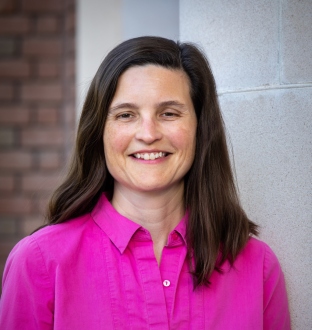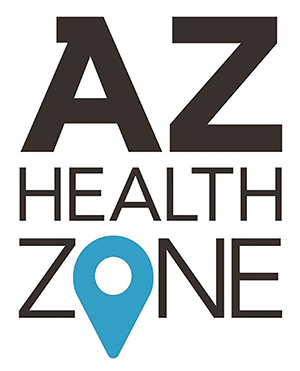Kathryn Orzech, PhD
I grew up in the Washington DC suburbs, and came to Tucson, Arizona in 2001 for school. By the time I left in 2010, I had gained two degrees, a husband, and a toddler. Short-term research jobs took us to Providence, Rhode Island, and then Dundee, Scotland over the next five years. Now we are happy to be in Tucson to be close to my husband’s family, and to enjoy the beautiful Sonoran desert. When I’m not at work I like to explore new places with my family, sing with the Faculty/Staff Choir at the university, and read cozy mystery novels.
On the academic side, I earned a PhD in Anthropology from the University of Arizona in 2010, specializing in biocultural and medical anthropology. My research interests include health behaviors, especially in adolescents and young adults, digital technology use across the lifespan, and biocultural perspectives on sleep. Because of my interest in both biological and medical anthropology, I took classes in public health and nutrition. I have also taught a range of anthropology classes including (among others) Nutritional Anthropology, Introduction to Biological Anthropology, Human Evolution, Anthropology of Childhood, and Global Health. My PhD project investigated adolescent sleep behaviors and perceptions with a sample of 50 teens in Tucson who were freshmen in high school. As a post-doc, I investigated the relationship between shorter sleep and physical health in adolescents, asking “If you sleep less, do you get sick more?” (spoiler alert: yes) and digital media use just before bedtime in young adults, asking “Does it really matter if you’re on the computer or tablet in the hour before sleep?” (spoiler alert: yes) Building on my technology interest, I joined a short-term project in the U.K. about digital technology use across the lifespan, asking “What’s the difference between the online life of a 19 year old vs. a 32 year old vs. a 65 year old, and why does it matter?” In 2015, I returned to my public health and nutrition roots, bringing research and teaching skills to my job as a program evaluator for SNAP-Ed in the state of Arizona.
Curriculum Vitae
Peer-Reviewed Journal Publications and Abstracts
Refereed Journal Articles
1. LeGros TA, Jacobs LE, Goodman GL, Orzech KM & Holmes E. (2020). A systems approach helps explain significant improvements in local wellness policies among SNAP-Ed-supported school districts. Journal of Nutrition Education and Behavior 52, 766-774.
2. Jacobs L, Orzech K, Goodman G, LeGros T, Martinez S. (2020). Understanding factors that support well-functioning community coalitions. Journal of Extension, 58, rb1.
3. LeGros TA, Jones B, Jacobs L, Orzech KM, Torbert K & Martinez SH. (2019). A case study of a new state model for assessing local wellness policies. Journal of School Health, 89, 191-199.
4. Durrant AC, Kirk DS, Moncur W, Orzech KM, Taylor R, Pisanty DT. (2018). Rich pictures for stakeholder dialogue: A polyphonic picture book. Design Studies, 56, 122-148.
5. Orzech KM, Moncur W, Durrant A, Trujillo Pisanty D. (2018). Opportunities and challenges of the digital lifespan: views of service providers and citizens in the UK. Information, Communication & Society, 21. 14-29.
6. Orzech KM, Moncur W, Durrant A, James S, & Collomosse J. (2017). Digital photographic practices as expressions of personhood and identity: variations across school leavers and recent retirees. Visual Studies, 32, 313-328.
7. Moncur W, Orzech KM, & Neville FG. (2016). Fraping, social norms and online representations of self. Computers in Human Behavior, 63: 125-131.
8. Orzech KM, Grandner MA, Roane BM, & Carskadon MA. (2016). Digital media use in the 2 h before bedtime is associated with sleep variables in university students. Computers in Human Behavior, 55, 43-50.
9. Orzech KM, Acebo C, Seifer R, Barker D, & Carskadon MA. (2013). Sleep patterns are associated with common illness in adolescents. Journal of Sleep Research, 23, 133-142.
10. Henry D, Knutson KL, & Orzech KM. (2013). Sleep, culture and health: reflections on the other third of life. Editors’ introduction to theme issue, “Sleep, Culture and Health,” Social Science and Medicine, 79, 1-6.
11. Orzech KM. (2013). A Qualitative Exploration of Adolescent Perceptions of Healthy Sleep in Tucson, Arizona, USA. Theme issue, “Sleep, Culture and Health,” Social Science and Medicine 79:109-116.
12. Orzech K, Huebner Torres C, Armin J, Vivian J, & Shaw S. (2013). Diet and exercise adherence and practices among medically underserved patients with chronic disease: variation across four ethnic groups. Health Education & Behavior, 40, 56-66.
13. Shaw S, Armin J, Huebner Torres C, Orzech K, & Vivian J. (2012). Chronic disease self-management and health literacy in four ethnic groups. Journal of Health Communication: International Perspectives, 17, 67-81.
14. Shaw S, Vivian J, Orzech K, Huebner Torres C, & Armin J. (2012). Consistency in attitudes across cancer screenings in medically underserved minority populations. Journal of Cancer Education, 27, 165-171.
15. Orzech KM, Salafsky DB, & Hamilton LA. (2011). The state of sleep among college students: research and practice at a large public university. Journal of American College Health, 59, 612-619.
16. Shaw S, Huebner C, Armin J, Orzech K, & Vivian J. (2009). The role of culture in health literacy and chronic disease screening and management. Journal of Immigrant and Minority Health, 11, 460-467.
17. Orzech KM, & Nichter M. (2008). From resilience to resistance: political ecological lessons from antibiotic and pesticide resistance. Annual Review of Anthropology. 37, 267-282.
18. Orzech KM. (2007). Notes from the field: a letter from high school. Arizona Anthropologist, 18, 105-108.
Conference Proceedings
1. Trejo J, LeGros T, Orzech K, Jacobs L, Goodman G, & Guterman C. (2021). A longitudinal evaluation of youth nutrition and physical activity knowledge and behaviors after SNAP-Ed multi-level interventions in Arizona. APHA’s 2021 Annual Meeting and Expo (Oct. 24-Oct.27).
2. Jacobs L, Orzech K, LeGros T, & Goodman G. (2020). Two SNAP-Ed evaluations in Arizona measure short and medium term indicators for multi-sector partnerships and planning. APHA’s 2020 Virtual Annual Meeting and Expo (Oct. 24-Oct. 28).
3. LeGros T, Jacobs L, Orzech K, & Goodman G. (2020). Changes in school health policy, systems, and environments among SNAP-Ed supported schools with and without Healthy Schools program participation. APHA’s 2020 Virtual Annual Meeting and Expo (Oct. 24-Oct. 28).
4. Orzech K, Jacobs L, LeGros T, Goodman G, & Lang R. (2020). Longitudinal SNAP-Ed study of community coalition characteristics in Arizona. Journal of Nutrition Education and Behavior, 52, S1-2.
5. Jacobs L, Orzech K, LeGros T, Goodman G, & Davenport J. (2020). Can Small Stores Get Healthier with SNAP-Ed? An Outcomes Evaluation Using the STORE Tool. Journal of Nutrition Education and Behavior, 52, S7.
6. Orzech K, Jacobs L, LeGros T, Goodman G, & Guterman C. (2019). SNAP-Ed study finds differences in nutrition and physical activity behavior of English versus Spanish speakers before education. Journal of Nutrition Education and Behavior, 51, S116.
7. LeGros T, Jacobs L, Orzech K, Goodman G, & Holmes E. (2019). A statewide local wellness policy assessment finds marked improvements among SNAP-Ed supported school districts. Journal of Nutrition Education and Behavior, 51, S46.
8. LeGros T,
9. Orzech K, Jacobs L, & LeGros T. (2018). Supporting health equity in Arizona by assessing physical activity resources. APHA’s 2018 Annual Meeting and Expo (Nov. 10-Nov. 14).
10. Jacobs L, LeGros T, Orzech K, & Davenport J. (2018). Assessing healthy purchase supports in small stores: a case study from Arizona. APHA’s 2018 Annual Meeting and Expo (Nov. 10–Nov. 14).
11. LeGros T, Jacobs L, Jones B, Orzech K, & Lang R. (2018) Implementation of school health initiatives is linked to Healthy Schools Program participation and higher employment counties in Arizona. APHA’s 2018 Annual Meeting & Expo (Nov. 10-Nov. 14).
12. Jacobs L, Orzech K, LeGros T, & Davenport J. (2018). Assessing the availability, appeal, and promotion of healthier foods in Arizona small stores using the Stocking Opportunities in the Retail Environment (STORE) tool. Journal of Nutrition Education and Behavior, 50, S59.
13. Jacobs L, Orzech K, LeGros T, & Martinez S. (2017) Communication strategies for complex public health programs to enhance use of findings and sustainability: A SNAP-Ed case study. APHA’s 2017 Annual Meeting & Expo (Nov. 4-Nov. 8).
14. Jacobs L, Orzech K, LeGros T, & Martinez S. (2017) Assessing coalition success factors in alignment with the national SNAP-Ed evaluation framework. APHA’s 2017 Annual Meeting & Expo (Nov. 4-Nov. 8).
15. McCullough L, Jacobs L, Orzech K, Farrell V, McDonald D, Armstrong Florian T,…Misner S. (2017). Using the Wilder Collaboration Factors Inventory to assess SNAP-Ed coalitions in Arizona: results from four counties. The FASEB Journal, 31, 30.5.
16. McCullough L, Farrell VA, LeGros T, Orzech K, Armstrong Florian T, Whitmer E,…Misner S. (2017). The usefulness of the Wellness School Assessment Tool (WellSAT) in the Supplemental Nutrition Assistance Program – Education (SNAP-Ed) schools in Arizona. Journal of Nutrition Education and Behavior, 49, S130-S131.
17. Durrant A, Kirk D, Trujillo Pisanty D, Moncur W, Orzech K, Schofield T,…Monk A. (2017). Transitions in digital personhood: online activity in early retirement. Proceedings of the 2017 CHI Conference on Human Factors in Computing Systems, 6398-6411.
18. Durrant AC, Trujillo Pisanty D, Kirk DS, Moncur W, & Orzech K. (2016). On presenting a rich picture for stakeholder dialogue. In: P. Lloyd & E. Bohemia, (Eds.), Proceedings of DRS2016: Design + Research + Society - Future-Focused Thinking, 6, 2183-2202.
19. Collomosse J, James S, Durrant A, Trujillo Pisanty D, Moncur W, Orzech KM,…Chantler M. (2014). Enhancing digital literacy by multi-modal data mining of the digital lifespan. Proceedings of The Digital Economy. (DE2014).
20. Orzech KM, Grandner MA, Roane BM, & Carskadon MA. (2012). Electronic media use within 2 hours of bedtime predicts sleep variables in college students. Sleep, 35, A73.
21. Orzech KM, Acebo C, Seifer R, & Carskadon MA. (2012). Sleep patterns in adolescents before illness vs. wellness. Sleep, 35, A397.
22. Orzech KM, Acebo C, Barker DH, Seifer R, & Carskadon MA. (2011). Fall sleep patterns are associated with winter/spring acute illness and school absences in adolescents. Sleep, 34, A49.
23. Orzech KM. (2010). Sleeping in “feels good, and then it feels too lazy…I wasn’t raised like that”: how American culture shapes adolescent sleep perceptions and behavior. Sleep, 33, A81.
24. Orzech KM. (2010). Functional adaptation to sleep loss in adolescents. American Journal of Human Biology, 22, 266.
25. Shaw S, Vivian J, Huebner C, Armin J, Orzech K, Vargas A,…Awad A. (2009). Consistency in attitudes toward cancer screenings in four ethnic groups. Cancer Epidemiology Biomarkers & Prevention, 18, B85.
26. Orzech KM. (2009). Family influence on adolescent sleep schedules. Sleep, 32, A412.
27. Orzech KM. (2007). Linking total sleep time and total caloric intake in adolescents: methods, difficulties, and preliminary results. American Journal of Human Biology, 19, 271-272.





